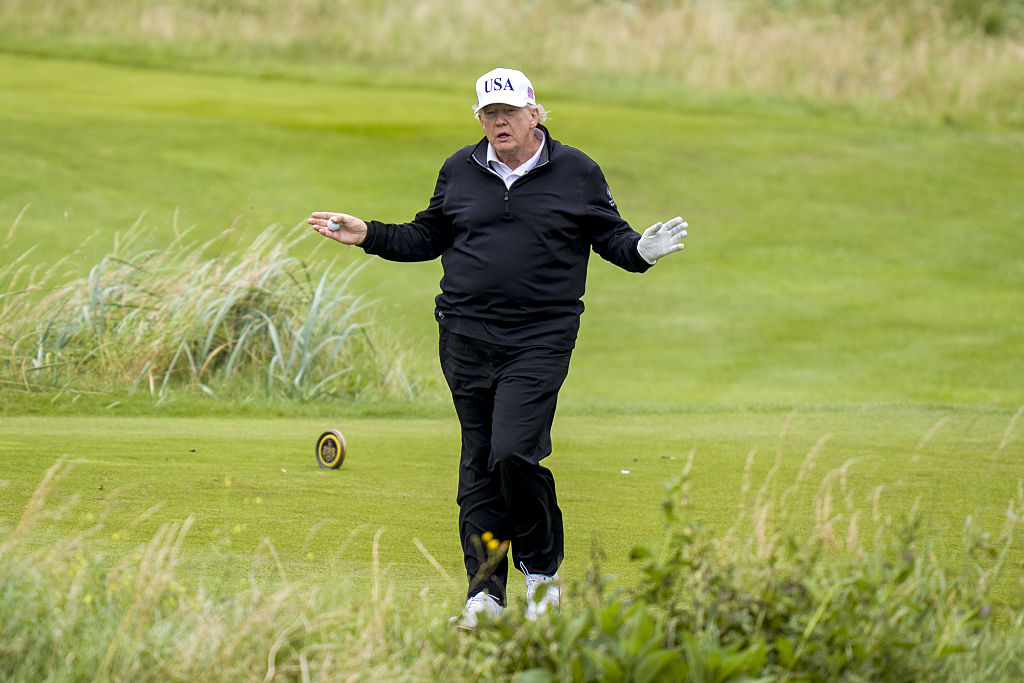“If we do a deal today, with the European Union, that will be the end of it,” Donald Trump said on Sunday, barely an hour before the bloc agreed the “biggest trade deal ever” with its largest trading partner. “We’ll go, I guess, a number of years, at least, before we have to even discuss it again.”
Not for the first time, the US president’s prediction proved wildly inaccurate.
Indeed, US officials have since openly admitted that key aspects of the agreement, which will leave most EU exporters to the US facing a 15% blanket levy, still need to be ironed out.
“There’s plenty of horse trading still to do,” US Commerce Secretary Howard Lutnick told CNBC on Tuesday. The EU’s digital services taxes, Brussels’ “attack” on US tech firms, and US tariffs on steel and aluminium are still “on the table”, he added.
Underscoring Lutnick’s point, over the past week Brussels and Washington have released separate press releases on the deal that in some places directly contradict each other, including on whether some of the EU’s €8 billion worth of metal exports to the US will be exempt from Trump’s 50% tariff (the EU says yes, the US says no).
Other points of disagreement or deep uncertainty include the timeline for the imposition of tariffs on the EU’s €120 billion worth of pharmaceutical exports; whether alcohol will be tariff-exempt; and how – or if – Brussels will “streamline” the sanitary certification procedure for American pork and dairy.
Olof Gill, the Commission’s spokesperson for trade, admitted on Tuesday that such discrepancies exist, but suggested they would be “clarified” in a non-legally binding EU-US joint statement that Brussels “hopes to have very soon”.
EU officials and diplomats also note that there have been extensive contacts between Commission officials and Trump’s team since Sunday – a claim corroborated by Lutnick during the CNBC interview.
And key member states, like France, are also gearing up for further negotiations.
“France has always maintained a firm and demanding stance. This is not the end of the story, the negotiation has to continue,” French President Emmanuel Macron told his ministers three days after the deal was officially signed.
A deal in name only
“These disagreements reflect the extremely short time-frame and generally chaotic nature of the deal – if you want to call it that, because it’s not really a deal,” said Arthur Leichthammer, a policy fellow for geoeconomics at the Jacques Delors Centre. “It’s just an announcement, or an informal understanding.”
Leichthammer added that these disparities are no accident, but instead form a crucial pillar of Trump’s negotiating strategy. “There’s enough unsettled bits he could use as future leverage, which he could renege on if he wants to,” he said.
Jean-Luc Demarty, former Director-General for Trade at the Commission, similarly warned that Brussels’ acceptance of a “deal” where so much is still left to be negotiated “is not a good method”.
However, he emphasised that Trump wouldn’t “necessarily respect” the deal even if its terms were crystal clear, pointing to the self-proclaimed “dealmaker’s” decision to renege on an agreement struck during the Commission presidency of Jean-Claude Juncker in 2018.
“We had a joint statement where we were supposed to engage in a tariff negotiation [on] industrial goods, without agricultural products,” he said. “It was accepted by Trump. And after a few months, Trump told us: ‘Sorry, guys. We need agricultural products in.’ So even with a statement, it doesn’t change a lot.”
Risky specifics
Some analysts also warned that the more specific parts of the deal – which include EU pledges to purchase $750 billion worth of US energy and invest $600 billion in US infrastructure over the remaining three years of Trump’s presidency – pose potential risks.
Commission officials have claimed that these promises, which are widely considered to be unrealistic and cannot be legally enforced by Brussels, were mere “projections” that were based on the “very clear intentions” of private companies.
Such considerations have led several analysts, including Paul Krugman, a Nobel Prize-winning economist, to claim that Europe “played Trump for a fool” during negotiations.
“What the EU actually promised on investment was nothing, Nichts, rien,” Krugman wrote on Tuesday, adding that the pledge to purchase more US energy is similarly “not going to happen”.
Other analysts, however, warned that these pledges risk backfiring on Brussels.
“This is a concrete benchmark that Trump can refer back to – and this poses a risk,” said Leichthammer, who noted that the 2018 joint statement agreed by the Juncker Commission contained no numerically specific purchasing or investment commitments.
“Given Trump’s preference for continuous dealings rather than one-off agreements, he can come back and say: ‘Actually, you have missed that mark. So the deal is dead, and we’re going to do what we want.’”
Eddy Wax and Elisa Braun contributed reporting.
